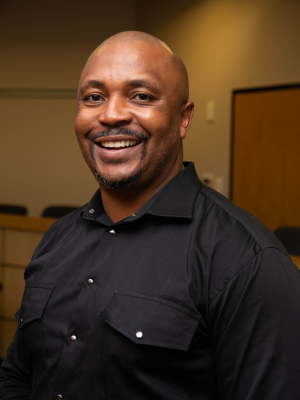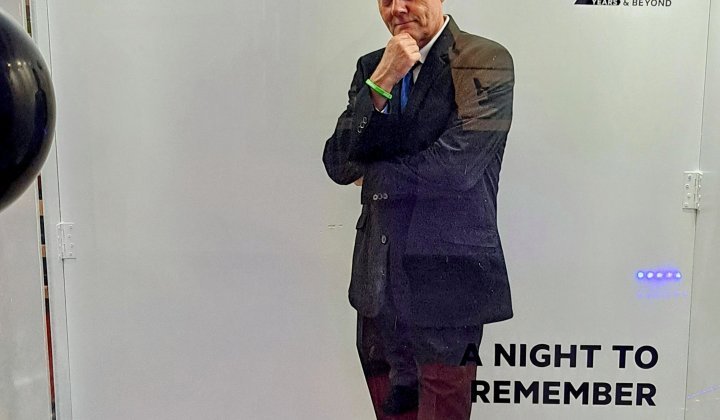My partner and I started our business, The DKNY Lounge, in 2019, less than a year before the 2020 pandemic hit, and hard lockdowns became our reality. A new hospitality business could have been doomed for failure at that time, but we survived and have continued to thrive three years on.
My background
Five years ago in 2017, I made the decision to embark on an entrepreneurial journey. I had hit a dead end in corporate, was lacking motivation and, to sound clichéd, was tired of corporate culture. I wanted to try my hand at something very different. Fortunately, at the time, there was an interesting intersection between getting involved in academia and my love of the hospitality industry.
While I wanted out of the corporate game, I was confident that my experience would stand me in good stead when I started my own business. I had the discipline that a corporate environment instils. I knew how business structures and processes work and had been involved in the planning that includes business strategy, decisions, budgeting, financing and reporting. In addition, my work experience, which encompassed customer insights, data analysis and brand marketing within multinationals, including Nedbank, Colgate, Kellogg’s, and Tiger Brands, meant I was well equipped to add value to a new business.
I also made the decision to partner with an entrepreneur. This meant that we both brought strengths to the business. While I understood systems and processes, he understood how to shape things, along with the risks associated with starting a business.
The DKNY Lounge
Two years after making the decision to embark on my entrepreneurial journey, the DKNY Lounge was launched in June 2019. It is a township-based eatery and entertainment lounge, located in the heart of Daveyton.
The Lounge got off to a good start and really benefitted from a bumper festive season, where we traded on public holidays including 16 December, Christmas Eve, Christmas Day and New Year’s Eve. These are big days in the entertainment space, and we capitalised on those.
Just two and a half months later, however, the country went into hard lockdown and our business, like many others in the sector, was hit hard. Yet, when so many others could not navigate the Covid-19 pandemic and the resultant lockdowns and bans, we survived.
I often reflect on what we did right. These are the six points that I believe have ensured our survival:
1. Intentionality
When you start a business you have to be intentional. You have to know what you want to achieve. In my experience, eight out of 10 township businesses are survivalist, and these businesses inevitably close. But, if you want to run a multimillion-rand business, whether it is Sandton or the township, you have to be intentional. You have to know how you are going to root yourself in the community in which your business operates.
When we started The DKNY Lounge, which would be trading in what is traditionally an overtraded space, we were extremely intentional in how we could embed ourselves in the township and differentiate our business in that space.
2. Thorough planning
Planning is essential when building a sustainable business. I am a firm believer in the old adage: “Failure to plan is planning to fail.” While working in corporate, I knew my days as a salaried employee were drawing to a close, and I started planning with my partner.
That planning involved saving our start-up capital. We wanted to have six months of working capital available to us in the bank. I believe having this money available was one of the reasons why we were able to successfully weather the lockdowns of 2020.
We also wanted to have access to funding so that we could build a long-term sustainable business. But we knew that to gain access to such funding, be it from government-funded programmes or private banks, we would need to have a sustainable business plan – a key part of this planning process. This plan must demonstrate that you have “put your skin in the game” through your own money, that you have planned for uncertain times, and that you have considered your future growth and income generation.
3. Financial rigour
It is essential to protect your business through a rigorous financial plan. You need to spend prudently and always make sure you have money in the bank. There will always be times when the rug is pulled out from under you, and you need to ensure you are able to stand up and carry on. When the hard lockdowns hit, we were still able to pay our seven employees. It may not always have been a full salary, but we made sure that they always had money coming in.
As entrepreneurs, we always say we pay ourselves last, which is what a responsible entrepreneur should do. But I go one step further. Always separate your personal and business accounts. Have a business bank account and a personal bank account and be disciplined enough to know that the business’s money is not your money. It belongs to the business, and it is the cash that should help bootstrap your operations. We, for example, own all our own equipment and have funded our own growth. We have never had to borrow money or go into overdraft. This strategy ensured we could pay for our operations, even when very little money was coming in.
I cannot overemphasise the management of your accounts, employing a skilled bookkeeper or financial manager. A good set of management accounts will help you see where the business’s rands and cents are going immediately. There should never be any question around the business’s finances.
4. Full compliance
We have always ensured we are fully compliant. We run the business with the future in mind because if your business is compliant with industry regulations, labour laws and tax laws, it can open a lot of doors. Without being fully compliant, you will battle to get funding for your business, sell your business to serious buyers or buy property or heavy duty equipment like cars or machinery on loan.
Although, to date, we have funded our business ourselves, we always have the safety net of knowing that if we do need funding, we are able to apply for it, because all our financial and regulatory requirements are in order. We can prove to lenders that we are a serious and professional business.
In times of crisis, like the pandemic, this was a great comfort to me. I knew that I could access funds to help me pivot the business to meet the demands of the situation. And, as we grow, we may well look for funding to start the next chapter of our journey.
5. Real community
When we started the business, we gave a lot of thought to how we could be relevant to our community. We asked, “What are we bringing to the community and how can we create value for it?” As a larger business, you are held up as a leader within your community.
So from the start, we worked with authorities to make sure we were always legitimate. We negotiated favourable payment terms with our suppliers. We explored ways in which micro-organisations could benefit from The DKNY Lounge. We have car washers operating in the car parks, we allow vendors to sell their products to our customers, and we organise food markets so that local sellers can have a platform to sell their products. These are not corporate social responsibility projects, but rather including the community into our business model and allowing them to benefit from our scale.
This idea extended all the way through to our customer base. We asked how we could create a product that resonated with our customers and give them the best experience possible, one that exceeded their expectations of a township eatery and entertainment lounge.
This strategy paid off because our community stood by us during lockdown by looking out for us and supporting our alternative income-generating initiatives.
6. Give back meaningfully
We realise that our business is dependent on good staff. So we try to ensure that we help our staff beyond the work that they do. We have, for instance, paid for some of our staff to get driving licences. This is a life skill that many people take for granted, but for our staff, it enables them to think of a life beyond The Lounge. We have also helped our staff get basic computer skills so that they can become digitally literate, which may give them the opportunity to apply for a job that is a step up.
Just like corporates send their people on training courses with the aim of empowering them to be able to offer more to the economy, this is how we empower staff, to ensure that they are able to contribute more to their families.
And when times were tough, and we had to shut our doors to customers and find other ways to sustain our business, these people stood by us. They adapted when we needed them to; they took salary cuts and when business returned to normal; they showed up to their regular jobs.
Sharing my passion
Entrepreneurship is my greatest passion, and now when I teach, I get great joy in sharing the story of The DKNY Lounge, and using my business as a case study for the lessons I try to impart. These insights are very personal to me and my business. In my experience, success has come from intentionality and planning, being financially savvy and genuinely putting people first.
KEY TAKEAWAYS:
- A corporate background can prepare you well for entrepreneurship.
- Intentionality and planning is key to the success of any entrepreneurial endeavour.
- Financial rigour and discipline can pay for your business growth without the need for loans.
- People matter – they are the foundation of any successful business.
- Look after your communities and they, in turn, will look after you.
- Compliance is key if you want access to loans, to buy capital goods or to sell the business.
- Empowering your staff is not only good for the business, but also the soul.
Silas Matlala is a GIBS adjunct faculty member who lectures and facilitates around marketing, customer centricity, business development and entrepreneurship. He spent over 20 years in various customer insights and marketing roles for some of SA’s top multinationals. In addition to entrepreneurship, Silas is a board member, and consults in marketing and communications, fintech, FMCG and resources.






